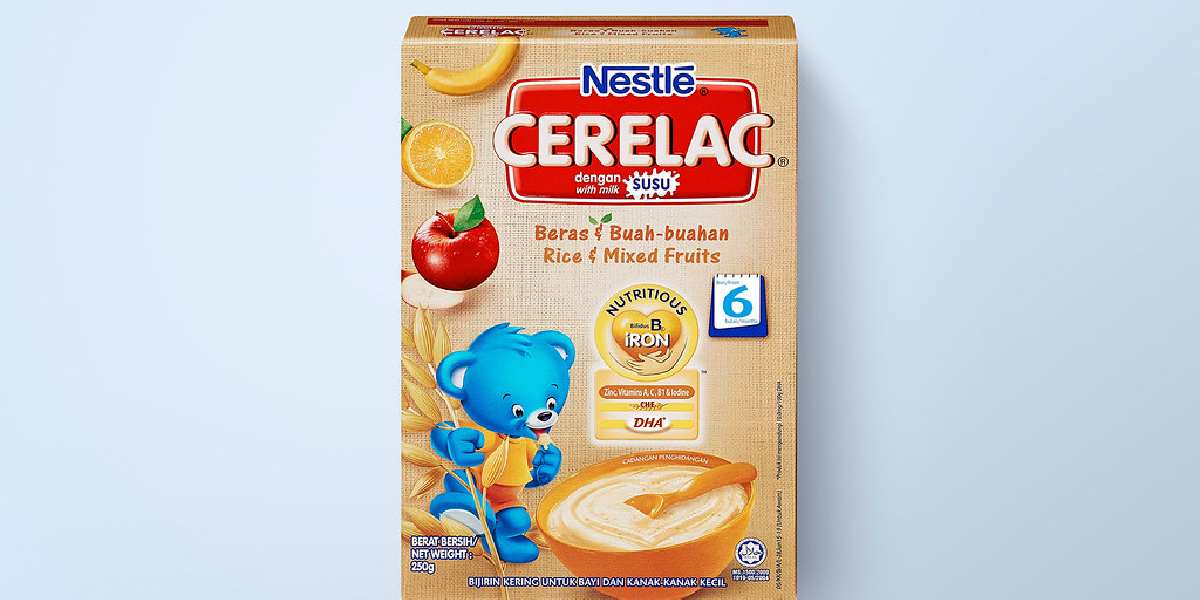WHO guidelines emphasise that baby food products should not contain added sugars. Yet, investigations reveal that Cerelac in India contains an average of nearly 3 grams of sugar per serving.

WHO's guidelines strictly prohibit added sugars in baby food (Creative Commons)
‘Cerelac’ is a household name in India, revered not just as a product but as a symbol of nourishment and care for infants and toddlers. It stands as a trusted companion for countless parents, accompanying them in their journey of nurturing their little ones.
Across diverse socioeconomic backgrounds, parents prioritise providing Cerelac to their children, understanding its significance beyond mere taste.
Packed with essential nutrients, vitamins, and minerals crucial for growth and development, the product addresses the challenge of ensuring proper nutrition in a country, where it can sometimes be a struggle.
However, there’s a hidden truth concerning Cerelac’s manufacturer, Nestle.
The World Health Organization’s (WHO) guidelines emphasise that baby food products should not contain added sugars. However, investigations reveal that Cerelac in India contains an average of nearly 3 grams of sugar per serving.
An investigation by Public Eye and the International Baby Food Action Network (IBFAN) revealed disparity in sugar content between products sold in low-income countries and those in more affluent regions.
Biscuit-flavoured cereals, for instance, contain significantly higher levels of added sugar in certain regions compared to others, indicating unequal treatment of infants based on their geographical backgrounds.
While Cerelac products in Europe and the UK boast no added sugar, counterparts in other regions, including India, reveal a concerning average of over 2.7 grams of added sugar per serving.
“In India, where sales surpassed $250 million in 2022, all Cerelac baby cereals contain added sugar, on average nearly 3 grams per serving. The same situation prevails in South Africa, the main market on the African continent, where all Cerelac baby cereals contain four grams or more of added sugar per serving,” said the investigation.
“In Brazil, the world’s second-largest market, with sales of around $150 million in 2022, three-quarters of Cerelac baby cereals (known as Mucilon in the country) contain added sugar, on average 3 grams per serving,” it said.
This incongruity not only contradicts WHO’s call for a ban on added sugars in baby food due to their potential long-term health implications but also challenges Nestle’s own nutritional advice, which advises against adding sugar to baby food.
The WHO has expressed concerns regarding obesity, which is dramatically on the rise, particularly in low- and middle-income countries, where it has now reached “epidemic proportions”.
Obesity fuels an increase in non-communicable diseases such as cardiovascular disease, cancer and diabetes. Increased consumption of ultra-processed foods, often high in sugar, is singled out as one of the main causes of this epidemic.
“Obesity is increasingly a problem in low- and middle-income countries. Childhood obesity is a major public health concern and it is on the rise in India. Along with obesity, other metabolic disorders creep in, such as diabetes, heart disease and fatty liver,” said Hepatologist Dr Cyriac Abby Philips.
“Nestlé has double standards for the Western market compared to Asian market – like children in the developing regions “inherently deserve less. It’s absolutely shameful, pathetic and disgusting,” Philips said.
“I think it’s time we got back our nutrition, especially for our children, back from locally sourced food sources, rather than depending on the food industry. Stop helping the sweetest villains grow taller. The whole food and supplements industry is turning out to be the greatest scam in the history of humankind especially in developing nations – because we “adjust,” he added.
Devil.
Nestlé baby food – Cerelac has global retail sales of above one billion US dollars. The highest figures are in low- and middle-income countries, with 40% of sales just in Brazil and India.
Guidelines from the WHO for the European region, which remains equally relevant… pic.twitter.com/PvoZLMIwF2
— TheLiverDoc (@theliverdr) April 17, 2024
The implications are profound, particularly in low- and middle-income countries where obesity and diabetes are already burgeoning concerns.
For Nestle, the apparent indifference to the health consequences of added sugars in infant products in these regions highlights a troubling disregard for the well-being of vulnerable populations.
The consequences of more sugar in baby food can lead to a variety of health issues, both in the short and long term.
Offering foods with added sugars to children from birth to 24 months is problematic because they eat relatively small amounts of food at this age.
If young kids fill up on high-calorie, sugar-laden foods or drinks, it leaves less room for nutritious foods. This can lead to a lack of essential nutrients for proper growth and development.
Also, consuming added sugars in infancy and early childhood can shape long-term food preferences, leading to a lifelong preference for sugary products. This can increase the risk of developing obesity and other chronic illnesses, such as heart disease, high blood pressure, and tooth decay.
(Edited by Shauqueen Mizaj)

Jul 26, 2024

Jul 26, 2024

Jul 26, 2024

Jul 26, 2024

Jul 26, 2024

Jul 26, 2024